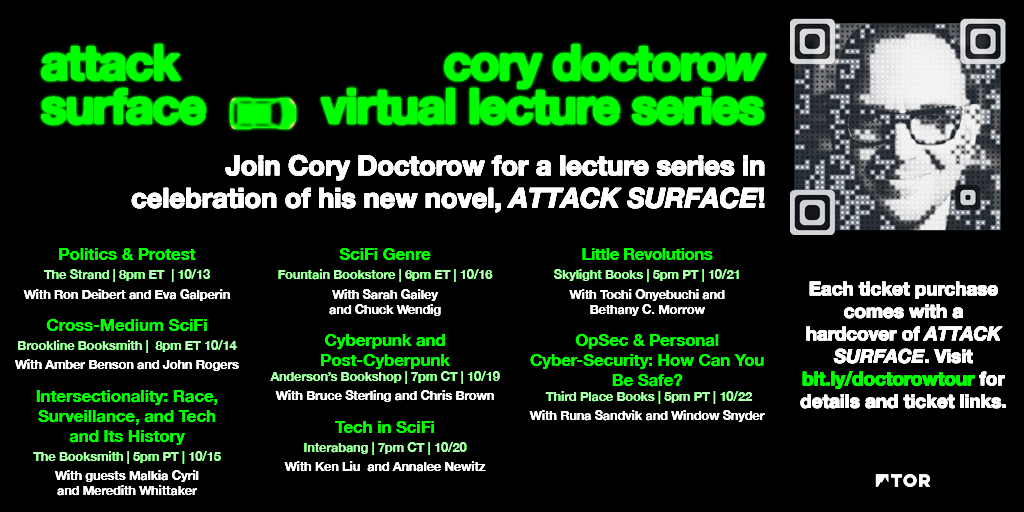
This month marked the publication of Kim Stanley Robinson's latest novel, "The Ministry for the Future." I have a copy, but I haven't been able to bring myself to read it.
hachettebookgroup.com/titles/kim-sta…
1/
hachettebookgroup.com/titles/kim-sta…
1/

The last time I saw Stan, he told me he thought it might be his last novel. He's writing nonfiction about the Sierras now. The thought of a world with no unread KSR novels is thoroughly depressing, precisely because his books are so inspiring.
2/
2/
But after reading his interview with @eliotpeper, I've reconsidered. No one writes optimistic novels about crises the way Robinson does, and reading about his approach to narrative is just as inspiring as the narratives themselves.
eliotpeper.com/2020/10/kim-st…
3/
eliotpeper.com/2020/10/kim-st…
3/
The story is structured as a kind of docudrama about the titular "Ministry for the Future," an entity that starts as a standing subcommittee of the Paris Agreement and grows into a bulwark against capitalism's Ponzi scheme, its systematic robbery from future generations.
4/
4/
Robinson describes the book as an adventure in the "structure of feelings" - the words we use to describe and manage the emotions we have in response to events.
5/
5/
Today, one set of structures - the comfort of a persistent order, the terror of impending crisis - is giving way to another, whatever comes after the pandemic and the election, whatever we do to confront (or deny) the permanent crisis that is upon us.
6/
6/
Storytelling is key to this structuring, and scientists have been struggling with storytelling for 20 years, as they try to awaken the political will to address the climate emergency.
7/
7/
"In politics, the front of good work is broad, so pick your special point of interest, but accept others have other points of special interest, and work in solidarity with them rather than arguing which point has priority." -KSR
eof/
eof/
• • •
Missing some Tweet in this thread? You can try to
force a refresh





















